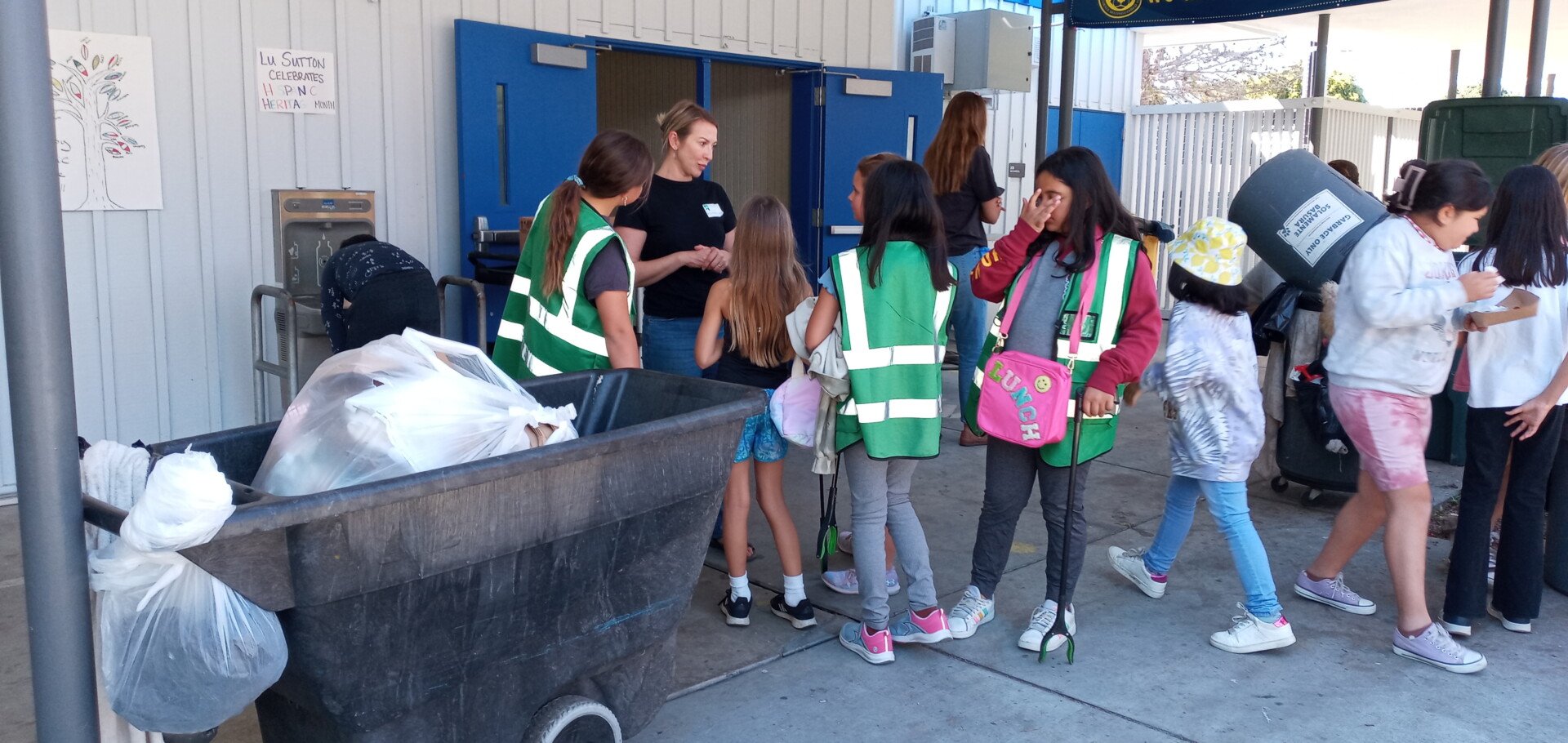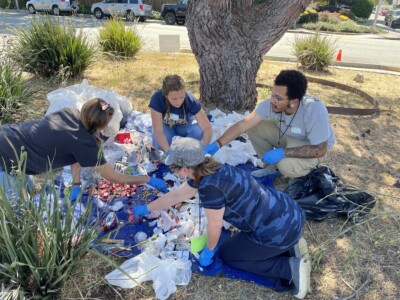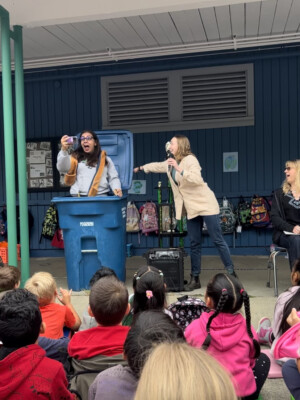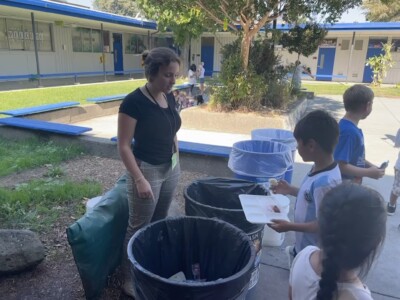
In Novato, California, a revolution is underway in the realm of school sustainability, led by an unlikely champion.

Lisa Clarke, a trained epidemiologist with a decade of experience in cancer research, has pivoted her career path to tackle an equally pressing global concern: climate change. Driven by a desire to create a better future for her children and a passion for environmental stewardship, Clarke founded Sustainable Marin Schools in 2022, an organization dedicated to helping schools implement comprehensive sustainability programs.
Building a Foundation
Clarke’s sustainability journey began when she became involved in her children’s schools, volunteering for composting and green team initiatives. Through this hands-on experience, she witnessed the staggering amount of food waste generated by schools. “It opened my eyes to how important food waste is in solving the climate crisis,” Clarke recalls. “I did that for a few years and then realized this is not a job for a volunteer. This is a full-time commitment.”

Before launching Sustainable MarinSchools, Clarke embarked on a period of extensive research, reaching out to a wide network of stakeholders to understand the challenges and successes of existing sustainability programs in schools. Armed with this knowledge, she partnered with the Novato Unified School District and launched a pilot program at Rancho Elementary School in 2022.
From the outset, Clarke’s initiative received a warm welcome from the school community. The Superintendent of Novato Unified School District, Rancho Elementary School Principal, and Rancho custodian proved instrumental in facilitating the program’s implementation.
Clarke’s dedication quickly attracted the attention of local organizations and philanthropists. MarinLink, Rotary Club of Novato, Marin Community Foundation, Marin Parks, Marin Office of the County Executive, and California Climate Action Corps have all been staunch supporters of her work.

Expanding Impact
In the 2023-24 school year, Sustainable Marin Schools expanded to include four elementary schools and Novato High School, accomplishing:
- Diversion & Donation: Diversion of over 150,000 pounds of food scraps and paper food ware from landfills. Donation of and 3,800 pounds of edible food.
- Milk Dispensers & Condiment Pumps: Replaced single-use milk cartons and condiment packets with reusable dispensers and pumps, significantly reducing waste.
- End-of-Year Cleanouts: Organized events to collect and repurpose unwanted art supplies, classroom decorations, books, furniture, and other materials from teachers, preventing them from ending up in landfills.
Empowering the Next Generation
When asked about her motivation for this work, Clarke says, “I want to be able to tell my kids that I did everything that I could.” She recognizes that climate change will disproportionately impact younger generations, and she is determined to empower them to become advocates for themselves and the planet.
Clarke’s approach centers on fostering a sense of responsibility in students. “The thing I love about the kids is they care and they see results and they make conclusions on their own,” she says. By involving students in every aspect of the sustainability programs, Sustainable Marin Schools is cultivating a generation of environmentally conscious citizens who are equipped to tackle the challenges of the future.
Tips for Other Parents or School Staff
Clarke is eager to share her insights and experiences with other parents and school staff looking to embark on their own sustainability journeys:
- Engage School Staff: Get permission to be on the campus. First get buy-in from the superintendent, then the principal, and then the custodian (most important). Build trust with the custodian over time – we’re there
 every day. “We’re not going to make your job harder,” says Clarke, and it’s true.
every day. “We’re not going to make your job harder,” says Clarke, and it’s true. - Engage the Students: Give a presentation in each classroom. Be present at snacks and lunch time. Train kids on how to help, some kids are very interested. Make a schedule for kids to help. Post schedule outside and make grabbers available.
- Think Long-Term: Develop programs that are self-sustaining and can be handed off to future generations of students and staff.
- Embrace a “Can-Do” Attitude: “Being naive made it all work,” Clarke reflects. Don’t let a lack of experience or resources deter you from pursuing your sustainability goals.